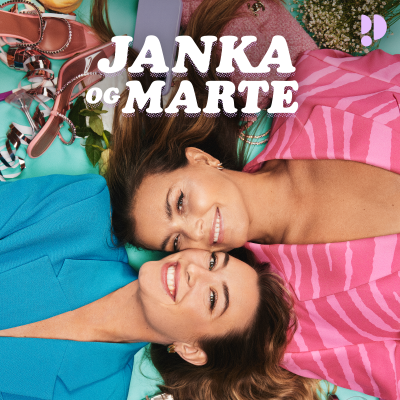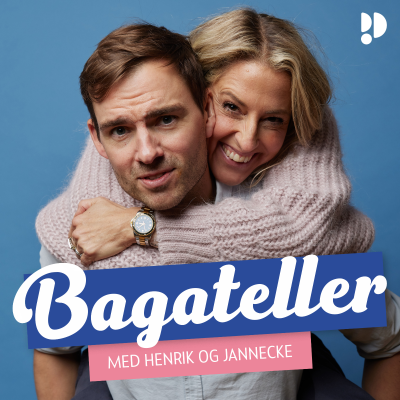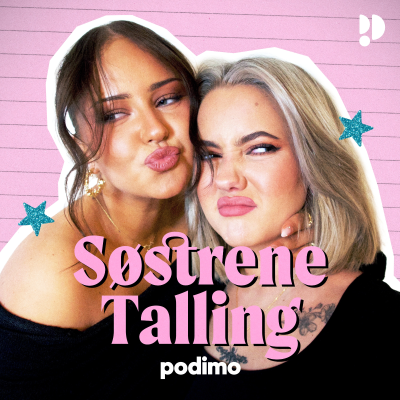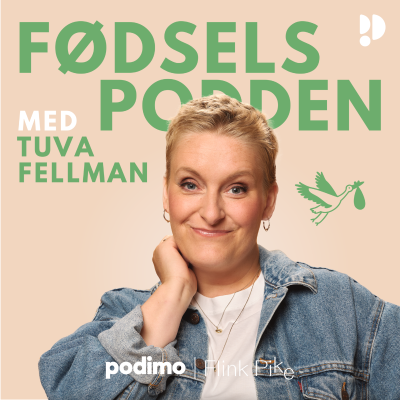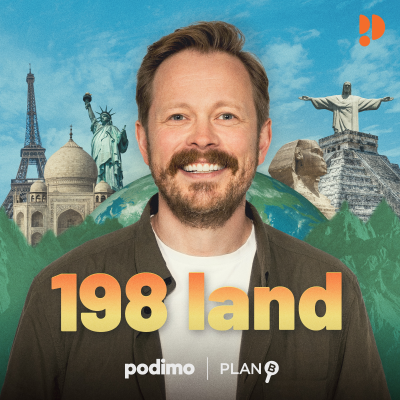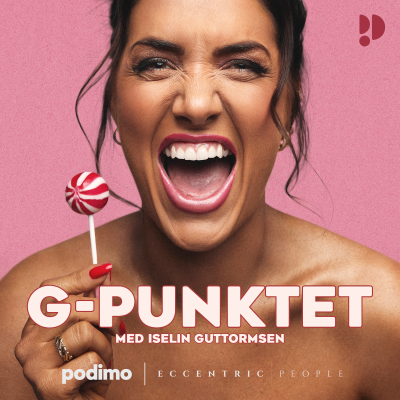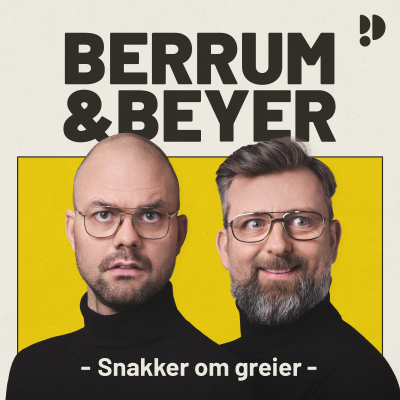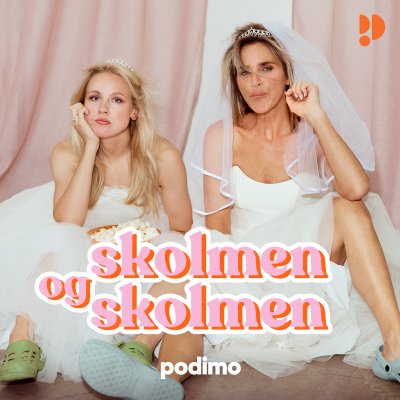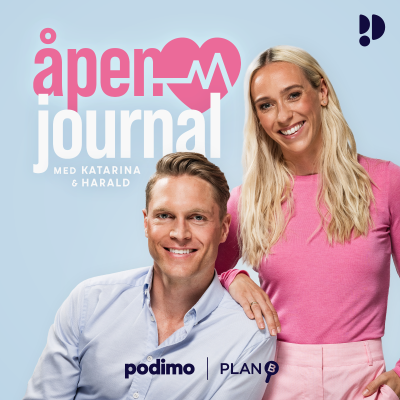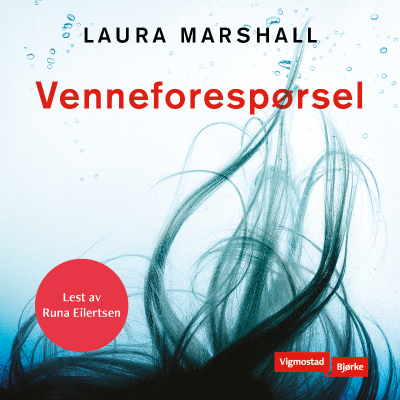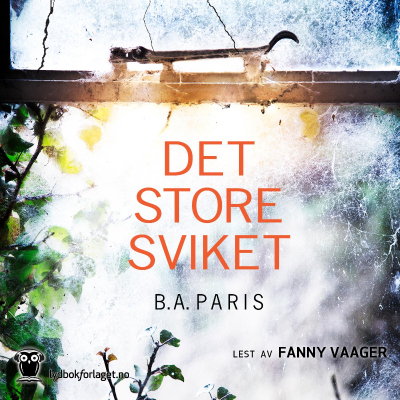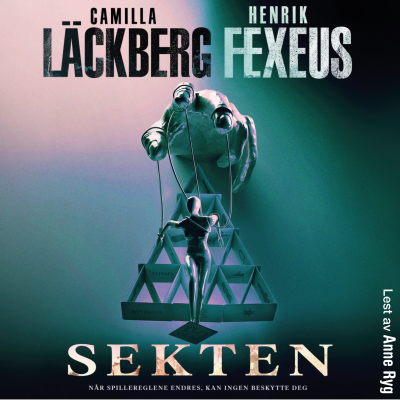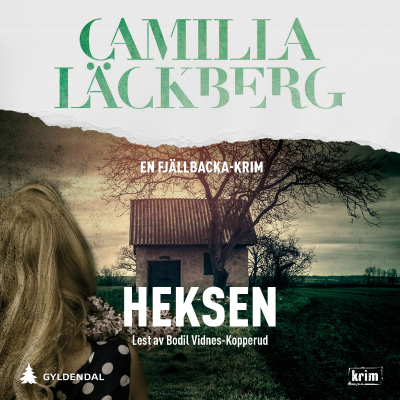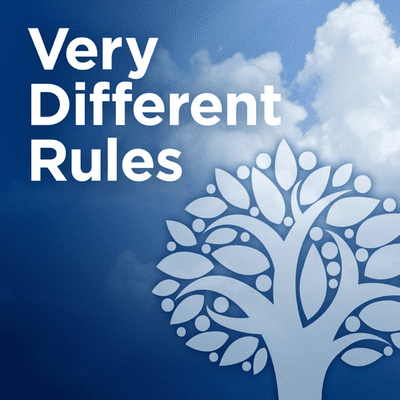
Very Different Rules
Podkast av Claremont Graduate University
Although publicly-owned and family-owned businesses have a lot in common, Peter Drucker suggested that when it comes to management, "the family business requires its own and very different rules." Director of the Drucker School Global Family Business Institute Kathleen Fariss hosts this podcast that sheds light on the distinct journey of family-owned businesses through authentic conversations with their leaders. With help from our special guests, we uncover the rules family businesses adhere to that are both binding and beneficial as well as tackle the unique issues and opportunities of family businesses that inform their definition of success. New episodes are available once a month and are free to listeners.
Prøv gratis i 7 dager
99,00 kr / Måned etter prøveperioden.Avslutt når som helst.
Alle episoder
11 EpisoderOn this episode, we will focus our discussion on leading through unstable and uncertain times and how never giving up on your dream and yourself yields big results. For a transcript of this episode, email cgupodcasts at gmail.com and include the episode title.
In this episode, we talk with Drew Everett, 4th generation family member and chairman of the board for Bush Brothers & Company, a 112-year-old family business. While their family recipe will always remain a secret, Drew reveals how the business has changed over the years, what lessons were learned along the way, and how the family continues to weather the storm, generation after generation. For a transcript of this episode, email cgupodcasts at gmail.com and include the episode title.
In this episode, we talk to entrepreneur and family office partnerfamilias Scott Taylor and managing partner of Hawke Ventures, the venture arm of a family office, Drew Leahy. We will focus our discussion on managing innovation with a family office during these unprecedented times, while keeping in mind that through disruption, innovation is sparked! For a transcript of this episode, email cgupodcasts at gmail.com and include the episode title.
Stewardship is a big part of it, but so is luck. In today’s episode, we sit down with Rene Ancinas, president, CEO, and fourth-generation family member of Port Blakely, about how the company’s vision to leave the world better than how they found it, plus a few fortunate circumstances, have kept them going for over 150 years. Episode transcript: Hi, I'm Kathleen Farris, and this is Very Different Roles, a podcast featuring conversations with family-owned business members, leaders, and advisors. Today we'll be talking with René Ancinas, Chief Executive Officer, fourth generation of Port Blakely. René, welcome to the show! René Ancinas Thanks for having me. Kathleen Farris You're welcome. We're glad that you took time out. We know you've got to be really busy up there with all those trees. So, we'll start today, René, to talk about, really, Port Blakely's success and the longevity that's allowed your family business to really continue, and of thriving in carrying your family values, your wealth, forward over the last 150 years. So if you can talk a little bit about your history and your family business and what you do for them. René Ancinas Sure, I'd be happy to do that. So, Port Blakely is actually a little over 150 years. It was founded in 1864 in the Puget Sound in Seattle. And it was not founded by an Eddy family member; it was actually founded by a gentleman named William Renton, who was kind of an icon in early pioneering history in Seattle. He had been a merchant marine; he had been an orphan, and like a lot of people at that time, he came west with that pioneering spirit and wanted to start something. René Ancinas He actually started in the milling business. He started a couple of different ventures which were not successful. One, he had started the company in a bad location with lots of high winds and notoriously bad Seattle weather. Kathleen Farris Probably hard for trees. René Ancinas Yeah, exactly. And then he... No, he was only in the mill business. Kathleen Farris Oh, got it, okay. René Ancinas This was before what we know today as sustainable forestry, which is a whole different world. Kathleen Farris Okay. René Ancinas Then he tried it again, and there was actually a boiler explosion and he lost his eye, and so he had this great eyepatch for the rest of his life. He went to the Bay Area to recover, and then he came back a third time and he found this great harbor on Bainbridge Island, which was sheltered and deep, and that's when the company really started and he really got going. So early on it was shipbuilding; it was the largest mill west of the Mississippi, one of the first to have electricity. And the family lore and the company lore is that it burned down at least two times. That was kind of the nature of it. René Ancinas But our family company came across from... They started in Bangor, Maine in the 18th century. They had been in the lumber business, like a lot of other families. They had gone, like a lot of business family members for a lot of different companies... Weyerhaeuser and everybody else... They migrated to the Midwest. Our family went to Michigan; we had operations there for the second generation, and different kinds of things. There was lumber milling, but the family member there was also in banking and dry goods. And then the next generation came west, like a lot of other folks, and they bought the company in 1903. René Ancinas Our family bought the company from the founders' estate in 1903, and at that point it was a mill, and over a period of time, Renton had also stockpiled some of his savings into forests. So back in the early days of big tree harvesting... A lot of people will have seen those famous pictures of the giant trees and... steam engines and people standing on these giant saws and all that kind of stuff. At that time, it was easiest to harvest closer to the water in Puget Sound and they would float and raft these logs around, which is why the mill worked on an island. But he was smart: he started buying forest land inland from there, figuring that at some point that was going to be valuable. René Ancinas And some of that forest land formed the beginnings of... When my family came on board, they made a good stab at the mill company. They got into shipbuilding during the first World War, but the forests were always in the background. And roundabout 1930 or so was when the family really focused on forestry and sustainable forestry, and that's the legacy that our family now... So we're fifth generation as of 1903, but if you count back to Maine it's probably a couple more. Kathleen Farris Wow. Okay, so- René Ancinas Yeah. It's a really interesting history, obviously. I could talk about it for a long time. And when you're part of western pioneering culture like we are, there's a lot of salty and interesting characters back there. Kathleen Farris I love the stories and the innovation piece, though, going all the way back to the 1800s. I'm curious to hear your perspective on, when they decided to innovate... Maybe they didn't know that they were innovators back then. You know, like when electricity was created, right? What is your perspective on that? Have you been told stories about, how did they get to the point? Was it a bunch of people around a table? Were they out on the mill? I'm just curious to hear your perspective of how it continued to carry forward, especially way back when. René Ancinas You know, that's a really good question, because modern management theory is just that: it's modern. There wasn't a lot of these things that you could go and read about how to solve these problems back in 1880 or whatever, and it was really kind of a scrappy perseverance entrepreneurship, and just... a fair bit of luck, I imagine. René Ancinas But I think at the time, they were dealing with the transcontinental railroad, and they realized that they had a mill on an island, and now the mill's going to be on the mainland, and so they tried to figure out how to raft lumber off to be closer to the railroad. The electricity was another thing. I don't know all the origins of that, but I think the mindset of people who were trying to build businesses in the wild west at the time had to have been very, very creative. René Ancinas And that DNA is definitely still part of the company, even though... I mean, there's a similar DNA that, over a couple of generations, you pick up roots and you move west each time for new business opportunities. It takes a certain mindset, and I think that our family members had a similar one, because when they got out here and they realized that they mill probably wasn't the best business, they pivoted pretty quickly into shipbuilding and partnering with other family members. René Ancinas And then after the first World War, when that really declined they had to pivot again, and then, with my great-grandfather, they spent quite a bit of time looking into forest genetics, and he ended up founding the Institute of Forest Genetics in Placerville to really study long term bug resistance, fire resistance, genetics, to figure out ways that forestry... to be sustainable. But it was really... Like I said, it took a certain mindset to pivot that many times. Kathleen Farris Yeah, and to really, the perseverance piece, I think, is fascinating, especially going back then again to the modern management time. How did they come together and keep the company going, the family business going forward and looking at everything that they needed to think about. Who would have thought they were thinking about, back then, what's going to impact the tree, because if there is something that impacts it of course it's not going to grow, right? René Ancinas Right. Kathleen Farris And then it dies off, like other businesses do. So yeah, I love the stories, which is a great part of having people like you come on our show, so our families can hear about, you know, how did you continue to innovate? And what I love, too, is what you were talking about the communication piece, because a lot of our families, that's a huge issue. And for some it's a positive, right? They're, "This is an opportunity for improvement!" And others are like, "Oh, no. Uncle this and that." So what I love about your company's vision is... and I read this... that it's to cultivate a healthy world, to leave things better than you found them, including your family. So I'd love to hear your perspective: where did that come from, and how do you continue to carry that forward as the CEO? René Ancinas Yeah. Well, it's a really interesting one, because I think what we learned after 150 years is that each generation has to drive its own vision within that context. If I think about those stories I just told, I'm fairly certain, although I... I would bet that they weren't talking about long term vision so much as, "How do we survive the Great Depression?" Or, "How do I survive the fact the mill just burned down a second time?" Kathleen Farris "How do I feed my family?" René Ancinas "How do I feed my family and take care of all these people that I've got employed?" Kathleen Farris Right. René Ancinas And so, some of those aren't a lot different, but in a lot of ways, we are in a very different world than we were then, and forestry in particular has gone through major revolutions and innovation and different mindsets in terms of its role in society. I mean, it used to be really, really frowned upon as the dark beasts of industrial extraction. Kathleen Farris Interesting. René Ancinas We all know about the timber wars and the [inaudible 00:09:17] and the redwood trees in California, but really more and more it's become a lot of the answer to climate crisis, because sustainable forestry really has so many benefits. René Ancinas And so to go back to your question, with my coming on as the next CEO and now having generations four and five engaged in the company... and also a different, I would say, demographic in our employees... We have more diversity in the employee workforce than we ever did. We have millennials and Gen X-ers and a whole variety of different folks... It was really important in 2013 or '14 as we were setting our next 30 year vision for the company, to say, "How do we make sure that our company is relevant and is impactful and aligned with a very mission-driven employee workforce?" René Ancinas There's people who are called to work in natural resources, just like in my old... My experience and my background is in the arts and music. But there's a real interesting commonality: people are very driven to work in nature. And so work has to be meaningful and impactful, so what we did in 2013 and '14 within the company is, we really revisited our vision for the next 30 years. And what really came away from that is that there needs to be a meaningful and impactful work environment. And part of that, and what drew all our employees and made this company, I think, special, was that our employees and our family felt it was important to take care of each others. Employees to family and family to employees. René Ancinas But also, because we work at a very large landscape level, the environmental impact and the impact that we have on rural communities and the communities where we operate was also very important. And so that vision... long answer to a good question... [inaudible 00:11:19] healthy world, really encompasses all that. It's that we want to leave things... This is kind of a classic example of stewardship, and we define it as exponential stewardship, which is, we want to leave everything better than we found it. Not just the company and the family members, just the employees, their families, the community, and the environment. Kathleen Farris Yeah, I love that. I mean, that's... In our family at home, we talk about that a lot, of, how do we leave each space better off than when we arrived? No matter what it is. René Ancinas Right. People who've grown up on farms or ranches, they've often heard that. There's, I think, another axiom... My grandfather was a cattle rancher, and we always learned that you leave the gate the way you found it. Kathleen Farris Yup. René Ancinas Of course, unless it's broken, and then you're supposed to fix it. Right? Kathleen Farris Yeah. René Ancinas So. Kathleen Farris Yeah, my family had a ranch. We did have cattle, and that's absolutely true. My dad would always say, "Hey, did you take the wire and close it?" It was before we had regular locks on it; it was literally the twine that kept it shut. So yeah, I loved that. Kathleen Farris Well, you know what I would like to do is kind of shift a little bit from the humans, but really talk about the governance piece. Because I know this is so important when you're looking at professionalizing and moving from generation to generation and how... especially from your perspective as a CEO, you come into this, you're in the G4, G5 transition, and governance is a huge part of helping our families continue to move forward. And when there's not governance in place, that's a different outcome and a different discussion, but can you talk a little bit about how your family business has used governance to move your family forward, and then maybe talk a little bit about the roles of your board and your family council? I think our families would love to hear that. René Ancinas Sure. Yeah, that's a big one. And certainly, in a cousin consortium as we are, and a fifth generation, we have about... plus or minus 140 what I would call stakeholders, about 85 shareholders... Well, first at the high level, we have a board of directors; we have 11 members on our board, which is large, and I'll explain why in a minute. But we have six independent professional board directors and five family members. And that's part of the reason that we have a larger board, is that we also operate by... We like to choose the best practices that might come from professional public company boards without a lot of the extras that, for us, you don't need at a private company. Kathleen Farris Sure, sure. René Ancinas So we have audit committee, we have a compensation committee, and we have a nominating and governance committee, so we have three committees and then a full board. Kathleen Farris Are the six directors family members, or are they elected from companies outside of your family? René Ancinas Of the 11 directors, all directors are elected by the shareholders. They're nominated by the board and elected by the shareholders. We're a limited partnership, so we have a slightly different [inaudible 00:14:36] structure; we have limited partner units and we have shareholder units that elect the board. René Ancinas But the reason we have 11 is that we wanted to make sure we have leadership on all those committees by independent, professional directors. And that family directors don't necessarily lead committees, but they actually play a very important role in communication about shareholder interests and needs. Not all directors have the same fiduciary responsibility. We also pay all board members the same- Kathleen Farris Oh, okay. So they get a stipend? René Ancinas Yeah. They get a stipend, a meeting fee, and then committee chairs get a little bit of extra for that leadership role. And then we also have a lead independent director, because my role is also CEO and Chairman of the Board, and we felt it was important because of the many hats that I wear, that there's always a lead independent director. That was something that we chose. Kathleen Farris That's great. René Ancinas Yeah. And of course, we have a family council, which can be anywhere from seven to nine, and they represent all branches of the family assembly for us that's defined as everybody 15 years and older, whether they own a share or not. Kathleen Farris Oh, okay. So that they can all have a voice. Okay, that's great. René Ancinas Yeah. So they all have a one-to-one voice on big, broad things. The shareholders and unit holders obviously have a vote by ownership. Kathleen Farris Sure, okay. René Ancinas So that's kind of the structure. The family council is sort of a constituent representative; they're educating, they're identifying issues and concerns and raising them. They're not necessarily communicating information about how the business is doing, but they're communicating to the business, "We think you should be communicating more about this topic," so we don't want to have the family council in a role where they are trying to translate business performance. This, again, goes back to, that's the business' responsibility. Kathleen Farris Yeah. Watch your swim lane. My favorite thing: watch your swim lane. René Ancinas Yeah. Kathleen Farris Let me help you stay in it, yeah. René Ancinas We talk a lot about that. So that's kind of the structure; I would say the goals of the governance structure are really about making sure that there is alignment and that there is a clear voice that we understand what the current owners need and want, but also we want to have future owners bought in so that when they inherit ownership or when they become owners, that they feel like they've had a say. And there's some complexity into that; make sure everybody knows who's coming from which... Kathleen Farris Which perspective. René Ancinas ... point of view. Right. Kathleen Farris Sure. René Ancinas But really, it's about alignment. And when we founded our whole governance structure back in around 1999, we spent a lot of time with John Davis and Cambridge Advisors... It was called Cambridge Advisors to Family Enterprise... and they really instilled in us an important concept, which was to keep the family in the business and the business in the family, there has to be a lot of pride and trust. And a lot of people will be familiar with that. So a lot of our governance structure, our programs, are all to make sure that we're building pride and trust in the company. Kathleen Farris So I think that's a really great topic to dig a little deeper in. So, pride. Some people are naturally going to have it, right? What advice would you give other CEOs like yourself if they're coming in and they have a landscape that maybe everybody doesn't have as much pride as you'd like them to. How would you look at engaging them? What advice would you have to share with our families? René Ancinas Yeah. Well, obviously they're going to proud of the company if the company is performing well. And so professional management and financial performance is really important. They're going to be proud... It can be subjective. For us, it was identifying, what would make the family proud? And that goes back to values, or is the company's values in alignment with what the family expects from the company? Kathleen Farris Sure. René Ancinas And if not, how do we reconcile that? So pride also has to do, I think, with... And we've had a lot of discussions over the years. You don't want the education of the family about the company to be an indoctrination, but you do want to make sure that you are sharing the stories about the company and what's the employee hat as the CEO. And usually it's even better to have not the family member CEO, but other employees come forward and talk about what they're doing and be really transparent about it, because you can't help but see how proud they are to work for the company and what we do, and that translates to the family. And then it builds over time. So this is a constant thing. Kathleen Farris It's kind of like a positive virus. René Ancinas Right, yeah. Kathleen Farris Yeah. René Ancinas And the trust comes with that. So the more they feel like they're hearing the whole story, not just the filtered, rose-colored lens- Kathleen Farris Yeah, "Everything's beautiful. We never have any problems." René Ancinas Yeah, which is natural when you're really proud of what you're doing- Kathleen Farris Yeah, that's true. René Ancinas ... but you have to be open and transparent about where you're maybe not succeeding, and that builds trust, and then that builds pride, too. So. Kathleen Farris Yeah, that's a really good point. Because I was with a family yesterday and one of my questions to their leadership team is, if you're going to go out onto the floor and share with the employees... which, about 40 of them were related of the 250... the "why" growth matters. Like, why are we continuing to grow? What was their answer? And the question was, we don't know. René Ancinas Wow. Kathleen Farris Right, yeah. So then back to... What I loved what you said earlier is, you took the time to plan a 30 year vision. I'm going to be honest: I had none of my families say that. Not that that's a bad thing, but good for you guys. How did you go down that path? I think I'd love to hear a little bit more about that. What was that process like? I mean, I've done vision work where we've done five years, 10 years, and then re-engineered back to figure out, how did we get to that. You know, here's the steps we took to get to that 10 year. But what does a 30 year process look like? Because I'm sure that because of that, and things you've done in the past, that's why your family is past the 150 mark. René Ancinas Well, that's an interesting... I should be clear: the vision that we did... And this presents, I think, a whole nother thing that's good for family companies to talk about. The vision that we're talking about, that we did, was the company's vision, that the employees in the company did. And we definitely included the family members, but this one was driven by what we know as a company and of what our employees felt strong about knowing our company and what their... based on what they believed the family would be proud of and that would do the right thing by the family, what is our company's vision? Which we shared with the family. René Ancinas The family, back when we were creating our governance structure as part of our constitution, the family also created a vision for the company, which was part of the constitution, and that they created for our family assembly. It doesn't maybe fall into what most people that might be listening would think of as a vision statement, but it had a lot of these same concepts of, we want to company to perform well, we want the company to take care of our employees and our communities, and that kind of thing. They were more statements. René Ancinas So what's interesting about all this is that family companies are not static, so just as you've done work in one of the circles, whether it's the company or the owners or the family, then you have to go back to the other one and keep building on it. So the family assembly now, through the family council, is revisiting the values over this couple of years, and that will likely lead to conversation about refreshing the family's vision for the company. And what we did do is, when we shared the vision for the company that the employees and staff came up with, there was a lot of excitement in the family. So it was really a test of, are we in alignment? And I think we got a lot of strong endorsements of that. Kathleen Farris Oh, okay. Good. René Ancinas But there's a separate conversation that needs to have as ownership transitions over time: do the next generation of owners share the same goals for the company as the previous generation? So it's never static. That's part of the stewardship of family governance, too. Kathleen Farris Yeah, I think that's a really good point, because like you shared earlier, each generation drive its own vision. And if your millennial generation is the "save the earth"... not saying that all of your generations aren't, but they have a different perspective of how they'd like to leave the space better off than when they arrived, so I think that's great that you continue to bring everybody together and really talk about what's working and their vision for the future. And some of our families have dozens of family members who work in the family business, and I understand that you guys have too. So I'd love to hear, what's the impact that you believe this has had on Port Blakely, especially what I read about binding the 140 members of the family closer to the company. René Ancinas Yeah. It's a really... When I joined the company, there were four of us. There was, my predecessor, the CEO, myself, and then the president of our forestry operations, because we have three operating divisions. We had four at the time, but three operating divisions. And his son had been working the company for many years, and so now it's his son Mike and I are the only two family members working in the company. But I would say that... I can say that from my experience... René Ancinas I have a couple of experiences. Before I was ever involved in this company, my parents had... I grew up in the mountains of Northern California in Squaw Valley, and my parents had ski shops. And very unrelated, but at the same time, there was something about an owner-occupied business. So they had special programs for ski racers to trade in equipment when nobody else had that kind of thing, because ski racing was a very expensive sport. They had fundraisers for ski education foundations; they did all this stuff. They had barbecues on Fridays for their employees in the parking lot; they did all kinds of stuff. And so there was a feel to having an owner-occupied business that I grew up with that I put in my memory bank. Kathleen Farris Sure. René Ancinas I would say that that same thing applies to having family members in a company when it's working well. When I came on board, I had a lot of employees say, "We are so happy to know that there's family leadership coming into the company. We were worried this may not happen," because I think it gives them a sense of continuity and that those values will continue. René Ancinas Now, the opposite side is that there's always a tension between that and it not becoming an entitlement, where as a family member you just assume you're going to work in the company, regardless of whether your qualified or dedicated. Because I think we've all studied and seen things, examples when that happens; unfortunately, the toxicity is kind of a multiplier. It's very de-motivating to the other staff. Kathleen Farris It just gets carried through the family business, for sure. René Ancinas Right. Kathleen Farris Yeah. René Ancinas So it's a balancing act. You have to be clear. One of the first things we worked on back in, I'd say '99 and 2000 was clarifying the expectations of family members and family employment. And we're going back to it in the next year to revisit it, because it's been 20 years since we looked at it. Kathleen Farris Oh, okay. René Ancinas Really make sure it's still relevant. Kathleen Farris So I know some of our families have shared that they have such a... I'll say "nonflexible policy," to where sometimes their family member is the best candidate, but because they're governance says "I can't give it to you out the gate if you, family member, don't interview as well as an outsider." So I'd love to hear your perspective on that, or how do you make sure that the entitlement doesn't happen, but that you don't lose a really good family member who could add total value? That's such a... That could be a morale issue altogether, of... You know, Susie is the new CFO, but really John really needed to be it because of where their skill sets align strategically with the family goals. So I would love to hear your thoughts on that. René Ancinas Yeah, I think one of the things that happens... It falls into the realm of entitlement and clear expectations... A lot of this can be subjective. So what I mean by that is, as long as you set expectations before you reach that really critical decision point, and you've thought through all the ramifications, then you're going to mitigate some of that concern. Where I think family businesses get into trouble in large and small incidents is when they reach that critical decision where there's a potential conflict and a mixture of professionalism hats: entitlement, experience, hopes and dreams and loyalties, is it gets very emotionally muddy, and that's where things go south. Kathleen Farris Right. René Ancinas So for example, we looked at a lot of different... And I wouldn't say we have this all perfect, but when we did our family employment policy, we looked at a lot of different models, and our general philosophy was that we felt that it was more important to have family members engaged in the company and working for the company than not. I know companies that don't want to have any family members as employees, except maybe the CEO, but we felt that it was important, that that was a good thing, as long as there were certain requirements. And so we said they must have a college degree; it's highly recommended that they work outside the company for a number of years, and they have to be qualified for the job and go through the same process anybody else does. René Ancinas I would say that in terms of our general hiring practices, we wouldn't outweigh any one part of the hiring process more than another. So if we really know the person and they didn't have the greatest interview, I'd say we probably wouldn't be that black and white about it, but it would require a lot of discussion, because any time you hire a family member, it's going to telegraph to the rest of the staff more so than it would anybody else. Kathleen Farris So true. René Ancinas Just to be aware of that is important. Kathleen Farris It reminds me of the can from when I was little... you know, the two cans and the wire. It's so quick. It just permeates, whether it's positive or negative, right? That's... I think that's... I mean, it does happen in other companies that are not family-run, but in fam- René Ancinas Well, especially if the can on the other end is in front of a giant megaphone over a stadium. Kathleen Farris I was going to say! In family-owned businesses, it is the megaphone. René Ancinas Yeah. Kathleen Farris Yeah, exponentially going through from one person to the next, so. You know, and too, I think... and shifting a little bit to the DNA that your founder... and I thank you again for sharing the story. I wish our podcast could be way longer, but when you come next time we'll have you on a panel or be our keynote. But the DNA that the founder created for Port Blakely, can you talk a little bit about how, in your role, you continue? Are there one or two things that you think about, "This is what I need to make sure is top of mind, to make sure those values continue to carry forward"? Because I think, just based on everything I've read and what I've learned from you and your staff is, it really has allowed your family to carry the wealth and the values forward in such a positive way, where some families, their founder is nonexistent in anything that they still do. So can you share a little bit about that, your perspective? René Ancinas Yeah. I thought about that... I've thought about that a number of times, because we're in this unique situation where our "founders," or our family founders, came from Michigan and bought this existing company, and they didn't start it from scratch. Kathleen Farris Right. René Ancinas The same mindset that brought them west, that same sort of pioneering, entrepreneurial mindset, was the same mindset that the actual founder of the company, William Renton, had when he came out from Bangor, Maine, all the way to [inaudible 00:31:26]. So I would say that... and then the way I've looked at it is, any company that lasts 150 years is very unlikely to be doing exactly what it did at the beginning and doing it the same way. So the way I look at it is, when I put the bundle of those three together in the history of the company, I really look at the DNA as one of being adaptable... Kathleen Farris Great, yeah, I love that. René Ancinas Creative. You know, a lot of perseverance and engagement. So when you're a founder and you're starting something, it is as much your life as it is your work; you're never not thinking about what you're doing. And there is a certain quality in our company where it is what people chose to do with their life; it's not an avocation; it's really a career that they're passionate about. And like I said, they're mission-driven. So we have that same dedication, perseverance, creativity; it's just maybe for different reasons in a different era. Kathleen Farris Yeah. That's great. René Ancinas Does that make sense? Kathleen Farris Yeah, totally made sense, because I think about some of the families who, they struggle with that and they can't figure out how to move to the next space because it gets in the way and it gets super muddy, instead of them being adaptable and flexible and... you know, you're right; if a family business started 100 years ago, they've changed. That's why they're 100 years old, right? René Ancinas Right. Kathleen Farris They still have a fabric of things that they do, and especially if they got governance in place out the gate, which doesn't always happen, right? Then it gets into these issues where family members sue each other, and then married in, and all of those things that just get kind of weird. But yeah, I really appreciate that. That's really helpful. Kathleen Farris So let's talk a little bit about... I learned about your Eddy Academy and your Leadership Academy, and I think our families that are looking at, how do we continue to educate the next generation, a lot of families are looking at that. Maybe they have no programs in place at all, and maybe they have a little bit. Do you want to talk a little bit about yours and how they've helped bring up the next generation? René Ancinas Yeah. Well, it's a really remarkable thing, because I grew up very distant from the company, and I used to come to shareholder meetings because I was forced to and had to wear a coat and tie and come to Seattle and sit in a smoke-filled room and... They were just very unpleasant, alienating experiences, and I can't imagine... It's hard to believe how much it's transformed, but I think... René Ancinas We've developed a lot of programs in the last 20 years for engagement. It's not just those; obviously we have an annual shareholder meeting, and annual meeting, which is as much a family reunion as anything else, but we have investor phone calls regular; we've had, from time to time, road shows where we do investor briefings with investors. Kathleen Farris Oh, okay. René Ancinas When we do shareholder meetings, we'll have guest speakers, or we'll go on field tours, or we'll do stuff to help people both have fun and engage in the company. I think the programs that you're talking about, the Eddy Academy and also then we developed a Leadership Academy, those are really based on a few things. One was, we want to make sure that everybody can come to the annual meeting, regardless of where they are in their stage of their life. So if they have kids and they're not coming, why not have a place where they can bring their kids and leave them? And if they're going to do that, with the mindset that we're trying to develop relationships between, sometimes, distant cousins at this point... Kathleen Farris Sure. Building a bridge? René Ancinas Building bridges, but also remembering that they're also business partners. And so at some point, those five-year-olds are going to be... if all goes well, knock on wood... Kathleen Farris They'll be shareholders. René Ancinas They'll be shareholders, and they'll be business partners. And so the more that they're looking to each other and they know each other and have a relationship, the more there's going to be glue. Kathleen Farris That's true. René Ancinas And then we also want to make sure that they understand and appreciate what this family company has provided all of us. And so there's a combination of fun activities, light activities around what the company is about. The Eddy Academy kids and their cohorts, the age ranges shift as generations are moving through. Kathleen Farris Sure. René Ancinas So as some of those little kids got into their preteens and teens, we realized, "Okay, we can't just send them to daycare; now we have to do other stuff." Kathleen Farris Right. Get some programming. René Ancinas Exactly. Kathleen Farris Yeah. René Ancinas So, and we've had a couple of educators in our family council over the years who have been really good at this, and so now with the Leadership Academy is a combination of traditional leadership development, and then some of the older kids that are in college or high school or just out of college, we've started doing every few years a national outdoor leadership program, NOLS program, where they actually go for a week into the outdoors, and it's a very powerful program that has been designed in collaboration with NOLS, and then they come to the annual shareholder meeting and share their experience there. And then we've developed internship programs, so it really tries to run the gamut from when they're little kids to owners. Kathleen Farris Sounds immersive. René Ancinas Yeah, and then we also have programs where any owner who wants to come and spend three days at the company, we have different curriculums where they can do a Port Blakely experience; they can go work in the woods for three days, or they can... There's a whole gamut of things they can do. Kathleen Farris Yeah. I think if I had to pick one of those, I would do that. Can I go with the trees? René Ancinas Yeah. It's a lot of hard work. Kathleen Farris Yeah. Yeah. Great. So, in your role, I'm sure there's been lots of growing opportunity for you, and so I'd love to hear, what's one or two unique challenges that you feel that you've faced, and how did you overcome them, and then was there anything that really surprised you in your role? René Ancinas Oh, wow. That's a... saving the good questions for near the end here. [inaudible 00:37:36] Kathleen Farris Of course. Welcome to Drucker. René Ancinas For me, it was a unique experience because I did not have a deep management background; I had been working in internet e-commerce, and before that I was trained as a musician, but I had been involved in the company to help establish that family governance program, so there was... As my predecessor said, people have the capacity to learn the business skills and tools, and we can get that, but having the understanding of how the family works and the trust in the family is the harder things to have. And so what the family company needed at that time, he felt, was more of that. René Ancinas Now, I think one of the things I learned from him is, companies and families will need different types of leaders and different leadership skills at different times, based on where they are. It's not... I think one of the main things I learned is, a lot of people think the CEO leadership role is something you see on TV, that every leader who works at that level is this brilliant entrepreneur who is smarter than anybody in the room... Kathleen Farris Yeah, they get up differently, they get dressed differently, yeah. René Ancinas Yeah, and frankly, they're usually middle aged white men, and the whole thing. There's this whole- Kathleen Farris Yeah. Totally untrue, but okay, yes. René Ancinas Totally untrue and based on a lot of bias. Now, I can't say that's true of everybody, but that's sort of the iconic CEO. What really happens, and what I've learned through meeting other CEOs is, there's a huge range of different personality types, and one of the things that I also learned is, you have to be yourself, recognize your weaknesses. You'll hear this a lot: surround yourself with people who don't think like you. Kathleen Farris I agree. René Ancinas Prop up your weaknesses or blind spots, and create a culture where you can have open dialogue. So it's not all top-down; it's really a collaborative effort. Kathleen Farris You get an A+. It's so true, though, because your role... It's kind of like we tell our students that work with us: everybody does get up the same way. We each have our roles in whatever company we work for, and you've got to make the best of it. And then, what education do you need? And the reflection piece is huge, and for families, I think that's it too: how do we continue to help them look inside and innovate themselves while they're innovating their own company? And for some families, the founder was the right leader; now passing the baton to G2, G3, or G4, you know, it's a huge failure rate. That next leader that's coming in might need to be totally different style of leader to carry the family business forward. And so I love how you shared that; I think it's extremely helpful for our CEOs and other people to hear. Kathleen Farris So what's the best advice you ever got? René Ancinas Oh my gosh. I think it probably is that, don't try to be something you're not. Know thyself, be yourself, and just be ready that you're never going to make everybody happy, but as long as you're genuine, you're real, you're authentic, you're caring, and you move things forward, the pride and the trust will be there. But you can't force somebody to be somebody they're not. Kathleen Farris Yeah, that's true. That authenticity is really true, especially in family businesses, because business is a family and a family is a business; they're all intertwined. That's great. Kathleen Farris Do you have a favorite book? Is there one book that you would recommend to family business leaders like yourself that they might want to read? René Ancinas That is a really tough question. I've read a lot of books on- Kathleen Farris I figured that. René Ancinas ... family business and leadership. You know, I did put a little bit of thought into this, and there's a few books that I would suggest. Early on, it was really helpful for us as a family to read through the generation to generation book. Kathleen Farris Oh, right, sure. René Ancinas I think a lot of people have read that as the three circle model. I consider John Davis a friend and a mentor for many years, and he and his firm have helped us through many, many things. But I find a lot of the writings he's done really, really helpful and insightful, generally speaking. We've also used a fair bit of the Family Business Consulting Group's pamphlets on a whole variety of topics. We used it a lot in succession planning; we've used books around... I think there's one called Financing Transitions that explains a lot of the really interesting concepts of patient capital, and some of the strategic advantages that family companies have. And then I'm a big culture person myself, so I'm a big believer in the writings of Feffer; I think he was at Stanford on culture-driven organizations. René Ancinas And I can't help but give a plug to our friend Mr. Drucker, because one of the early things that I think my mom sent to me very early on was an article about management as a liberal art, and I still have that dog-eared article copy in one of my notebooks, and I go back to it over and over again. I think the concept of management as a liberal art is a really, really important one. Kathleen Farris Yeah. That's a great story, and it came from your mom? René Ancinas Yeah. Kathleen Farris Wow. That's great. Yeah, I think those are absolutely great resources for our families to think about, because again, there's not a lot of research out there; there's not a lot of books for family business leaders, and I think these are extremely helpful. Thanks for sharing them. Kathleen Farris If you could go back in time and ask your founder for advice, given everything you've learned so far, what question would you ask? René Ancinas Wow. Boy, that would be a really interesting coffee. So I'm going to assume the founder- Kathleen Farris You could make it up. It could be a bunch of questions. Go ahead. René Ancinas Oh yeah, yeah. I'm going to assume the founder from a perspective of a family enterprise, versus William Renton. Kathleen Farris Yeah, great. René Ancinas I guess it would be... It's not so much advice, but I really would like to know what... and these were really siblings, so there were three brothers and a sister, and one of the brothers and the sister stayed in Michigan and the other two brothers came out west as a family enterprise together. I guess I would ask my great-grandfather and his older brother, what was their 30-year vision for the company, back in 1903? Kathleen Farris Great question. René Ancinas Why come to Seattle from Michigan in 1903; why this company; why here, and what were their hopes and dreams? I don't think we ever had a chance to hear that story. Kathleen Farris Yeah, that's a great question. René Ancinas Because like I said, I assume that they were just trying to survive, and they certainly had the means to come and buy the company, so they weren't suffering financially; they had the ability to do it, but they didn't have to. Kathleen Farris Yeah, the why behind it is always interesting to hear about how they got to that point of, this is the why. This is why that matters to us. Yeah, that's a great question. Kathleen Farris Well, I think this is a great place for us to end. Thank you for coming on the show today, and I'd like to close with asking you, why was it important to you today to come on the show and share your story? You could have been doing a lot of other things besides this, but why share your story? Why is that important to you? René Ancinas Yeah. Well, I guess I think family businesses, family enterprises, are a very special thing. As I say often to people, they're a whole different kind of animal. And no two are the same; the solutions that all of us are searching for are not the same; you can't find them in a textbook. Kathleen Farris It's true. René Ancinas And so anything that any family company can do to share with each other what we've learned, I think is helpful. And I'm the same way, so I am often listening to others talk about it and what I can learn from them. So I think it's really just about contributing to the conversation to help other family companies as much as our own. Kathleen Farris I love that. Great. Contributing to the conversation. Well, thank you so much for coming on the show today. I really appreciate it. This is Kathleen Farris, and you've been listening to Very Different Roles, recorded live in Studio B3 at Claremont Graduate University in conjunction with the Drucker School Global Family Business Institute.
Value, integrity, and progressive. These are the first three words you see when visiting the website of family-owned Thompson Realty Group. In this episode, we talk with Kent Thompson, president, and Topher Thompson, licensed agent, about family values and how they are developed, instilled, and carried forward through generations. For a transcript of this episode, email cgupodcasts at gmail.com and include the episode title.
Prøv gratis i 7 dager
99,00 kr / Måned etter prøveperioden.Avslutt når som helst.
Eksklusive podkaster
Uten reklame
Gratis podkaster
Lydbøker
20 timer i måneden
